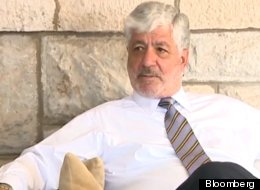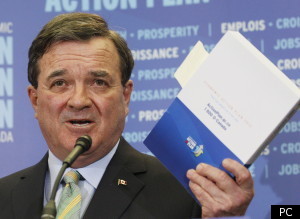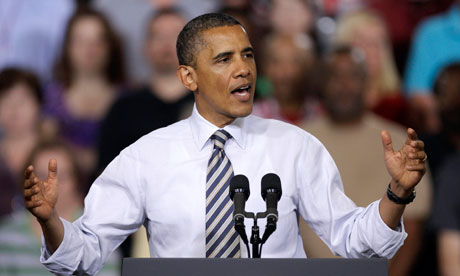OTTAWA - The Bank of Canada is holding off on raising interest rates for awhile longer — perhaps a lot longer — citing worsening global conditions and an uneven Canadian recovery that is not quite strong as advertised.
The decision to keep the bank's trendsetting overnight rate at one per cent for the 14th consecutive policy announcement was widely expected.
Also not surprisingly, the Bank of Canada has quickly acknowledged that the hopeful monetary policy review delivered by Gov. Mark Carney in April may have been premature.
In a more pessimistic take, Carney and his policy setting council conceded in Tuesday's announcement that the outlook for global growth has weakened in the past few weeks, and that Europe has gone from a risky environment to one in which the risks are now reality.
"This is leading to a sharp deterioration in global financial conditions," the bank said in a statement accompanying its rate announcement.
As if on cue, Spain sent out a distress signal prior to Tuesday's emergency G7 finance ministers' conference call, which included Canada's Jim Flaherty, saying it was having difficulty accessing credit at affordable rates.
Scotiabank economist Derek Holt said given the developments, Carney had no choice but soften his previous position that the time to raise rates was approaching. The bank governor did not completely reverse course, but that may be forthcoming in the next statement in July, Holt said.
"In a perfect world the bank would be raising rates right now," he said. "But the geopolitical turn of events and as well as the domestic softens in sectors outside of housing won't allow them to do so."
Holt said he expected an even more dovish outlook from the bank in July, when it releases its next comprehensive assessment of the world and Canadian economies.
"In our opinion, the bank went as far as it could to reduce the hawkish content of its statement, without interfering with its credibility, but clearly the urge to hike is less intense than in April," agreed Jimmy Jean of Desjardins Securities.
"This sets the stage for the assessment of a wider output gap than previously expected, in (July), thus crystallizing what we feel will be a repetition of the 2011 episode, where the bank was forced to the sidelines by overriding global developments."
The bank's statement made clear that its council of governors believes the problems extend beyond Europe.
"While the U.S. economy continues to expand at a modest pace, economic activity in emerging-market economies is slowing a bit faster and a bit more broadly than had been expected," the bank said.
In Canada, it conceded that the 1.9 per cent growth in gross domestic product registered in the first quarter was disappointing — the bank indicated in April it was looking for 2.5 per cent growth. But it said overall the economy is holding up because of a strong housing sector, still-positive business and consumer confidence, and the low interest rate environment.
Still, it noted that difficult foreign markets along with the persistent strength of the Canadian dollar mean exports will remain weak. Although credit has boosted growth, the bank took note that "households continue to add to their debt burden in an environment of modest income growth."
Carney has long expressed concern that Canadians were borrowing too much it times of low interest rates, and will be trapped with high payment obligations once rates start normalizing. It is believed to be one of the main reasons the central banker wants to start raising rates as quickly as conditions allow.
Holt said he believes the governor is worried about following in the path of the U.S. in response to the 2001 slump, when the Federal Reserve kept interest rates very low for years, triggering irresponsible lending and a housing bubble.
But he adds the Canadian situation is different. Growth in household debt is already slowing, he said, and the federal financial watchdog is clamping down on the Canadian Mortgage and Housing Corp. and other financial institutions.
The bank and markets will get a better reading of how the Canadian economy is holding up against the stiffening headwinds from abroad on Friday when Statistics Canada reports on job growth — or contraction — for the month of May.
The past two months have seen employment expand by an eye-popping 140,000 jobs, but many economists are not convinced and expect to see some payback Friday and in subsequent months.
In the one-page statement, Carney makes the point he would still like to return to a more normal policy setting if conditions would allow him.
"To the extent that the economic expansion continues and the current excess supply in the economy is gradually absorbed, some modest withdrawal of the present considerable monetary stimulus may become appropriate," he writes.
That's a little less hawkish that what Carney said in April, but the intent remains the same.
The good news is that the bank has no pressure from inflation. With the economy operating with excess capacity and gasoline prices dropping, it expects the consumer price index to drop below two per cent in the next little while.
Original Article
Source: huffington post
Author: Julian Beltrame






























